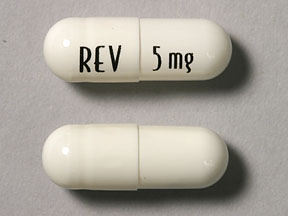
Recently Diagnosed or Relapsed? Stop Looking For a Miracle Cure, and Use Evidence-Based Therapies To Enhance Your Treatment and Prolong Your Remission
Multiple Myeloma an incurable disease, but I have spent the last 25 years in remission using a blend of conventional oncology and evidence-based nutrition, supplementation, and lifestyle therapies from peer-reviewed studies that your oncologist probably hasn't told you about.
Click the orange button to the right to learn more about what you can start doing today.
- You are here:
- Home »
- Blog »
- Multiple Myeloma »
- Myeloma -“6 protocols- Looking at Integrative/Holistic”
Myeloma -“6 protocols- Looking at Integrative/Holistic”

“Over the last 2 years, we’ve gone the conventional route trying 6 or so MM chemotherapy protocols including Velcade, Revlimid, Dexamethasone, Carfilzomib, Cytoxin…”
Hi David, We’ve been on a long and arduous journey (as have many undergoing multiple myeloma chemotherapy). While we were fortunate enough to have 8 years in the MGUS stage, after my mom’s m-spike escalated, she went on a trial that pretty much put her in the ICU with major organ failure, blood transfusions, for 2 weeks (high dose carfilzomib trial).
Over the last 2 years, we’ve gone the conventional route trying 6 or so MM chemotherapy protocols including Velcade, Revlimid, Dexamethasone, Carfilzomib, Cytoxin, and though planned, didn’t end up harvesting / doing a stem cell transplant (and probably won’t).
She significantly relapsed as of yesterday with m-spike of 6.6 (up from 3.8 last month, which is when ironically she stopped all supplements). Also, one note is that a heavy metal test indicated my mom has mercury poisoning, but our oncologist and family does not seem to think that is relevant.
Currently, pretty much at the end of conventional MM chemotherapy methods not including trials.
- What type of MM did you have (IGA, IGG…) and did / do you have any high risk markers?
- Do you have any views of LDNaltrexone – for MM, saw this on your website with a note on pancreatic cancer.
- One note is that a heavy metal test indicated my mom has mercury poisoning, but our oncologist and family does not seem to think that is relevant.
Hi Kerry- It sounds as though you and your mom have been through the MM ringer. You are clearly working at it.
o learn more about evidence-based, non-conventional, non-toxic therapies, managing and alleviating side effects, and overall structuring your life to support your body and fight Multiple Myeloma, please watch the video below:
Let me know if you have any more questions.
Thank you,
- MM Survivor
- MM Cancer Coach
- Director PeopleBeatingCancer
- Can You Get Multiple Myeloma On the Job???
- Multiple Myeloma Information
- Key Questions for Multiple Myeloma Patients
Conclusions
The totality of the basic and clinical research to date suggests that LDN is a promising treatment approach for chronic pain conditions thought to involve inflammatory processes. The clinical data supporting its use are very preliminary, and more research is needed before the treatment approach can be widely recommended. Critical parameters such as dosing still need to be refined. LDN may emerge as the first of many glial cell modulators that could be used to treat chronic conditions, with more specifically targeted medications developed in the future. As conventional anti-inflammatories have poor blood brain-barrier permeability, we expect centrally active immune modulators to be an area of interest in the future.



